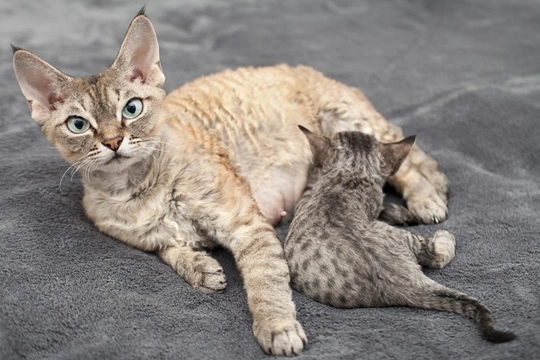
Ten tips on caring for a pregnant cat
If your female cat is pregnant, hopefully this has happened as the result of a planned mating with a good quality sire, with the intention of producing healthy pedigree kittens that will be in demand with responsible owners. If this does not sound like your cat and your plan, have your cat spayed before they breed indiscriminately and up the population of unwanted kittens in need of homes!
Making the decision to breed from your cat is very exciting, and the whole process from conception to delivery and raising the kittens can be highly rewarding, and something that is a privilege for the owner of the queen to take part in.
In this article, we will cover ten top tips on caring for a pregnant cat, to make their term of gestation and delivery as smooth and comfortable as possible. Read on to learn more!
1. Ensure that you can home the kittens before you breed
Before you even make the decision to breed and find a suitable sire for your cat, you should first ensure that breeding from your cat is a responsible choice, and this means looking into the amount and type of demand that is likely to be there when it comes to homing the subsequent kittens.
If your cat’s breed is rare or very desirable, people will often express and interest in or join a waiting list for the kittens before they are even born, so test the waters before you commit to breeding.
2. Keep your cat inside after conception
It is entirely possible for a female cat to have a litter that is fathered by two different sires, if the queen comes into contact with two or more different entire male cats while they are in heat. Once your cat has mated, keep them inside and away from contact with other entire male Toms for at least a week after conception, to minimise the chances of the litter having a mystery father!
3. Let your vet know that your cat is pregnant
It is wise to let your vet know that your cat is pregnant, even if the pregnancy progresses like clockwork and you do not need your vet’s help along the way. They can provide you with advice and recommendations throughout the process, and your cat’s medical records should reflect the fact that your cat has had a litter.
4. Take care with medications
If your cat is on any medications, supplements or other treatments, talk to your vet about these before you breed. Not only are some medications contraindicated for use during pregnancy, but if your cat has an underlying health condition that necessitates the medication, this may in some cases mean that breeding from them is a poor idea, as they may pass on the condition to their offspring.
5. Choose your cat litter wisely
Whether your cat will remain inside for the entire duration of their pregnancy or not, you will need to have a litter tray ready for the queen and litter to use when they are born. The litter try should be low sided so that the kittens can get into it as soon as possible, and the litter that you use should be free of clay and non-clumping for safety reasons.
6. Make a nice nest for your queen
Your pregnant queen will naturally begin to gravitate to a comfortable spot where they want to give birth as the time approaches, and once they have picked their spot, they will begin to nest there, preparing a bed for their coming kittens. Provide plenty of soft, comfortable bedding for them, with lots of spares for when you need to wash the first set!
7. Know how to feed a pregnant and nursing queen
As your cat’s pregnancy progresses, their need for food will increase dramatically, peaking when they are producing milk for the kittens. Your cat should be able to free-feed on high quality nutritious food at all times, and it is a good idea to talk to your vet about the best way to feed your queen at every stage of the process.
8. Know what to expect at each stage of the pregnancy process
Check out our cat pregnancy week by week calendar in order to get a better understanding of what to expect at each stage of the process.
9. Keep your cat safe
When your cat is pregnant, they will be more vulnerable and less able to defend themselves than they normally are, which means that you should take steps to protect them from potential threats. This may mean separating them from other cats, and ensuring that they are not hassled by dogs or visitors that come over to your home.
10. Keep your cat’s life quiet and calm
A pregnant and nursing queen will soon become unhappy if they are subjected to a constant stream of visitors, particularly during the first few days of the kittens’ lives. Restrict access to your cat to people that she knows well, and ensure that she is not disturbed unduly while taking care of her kittens.



